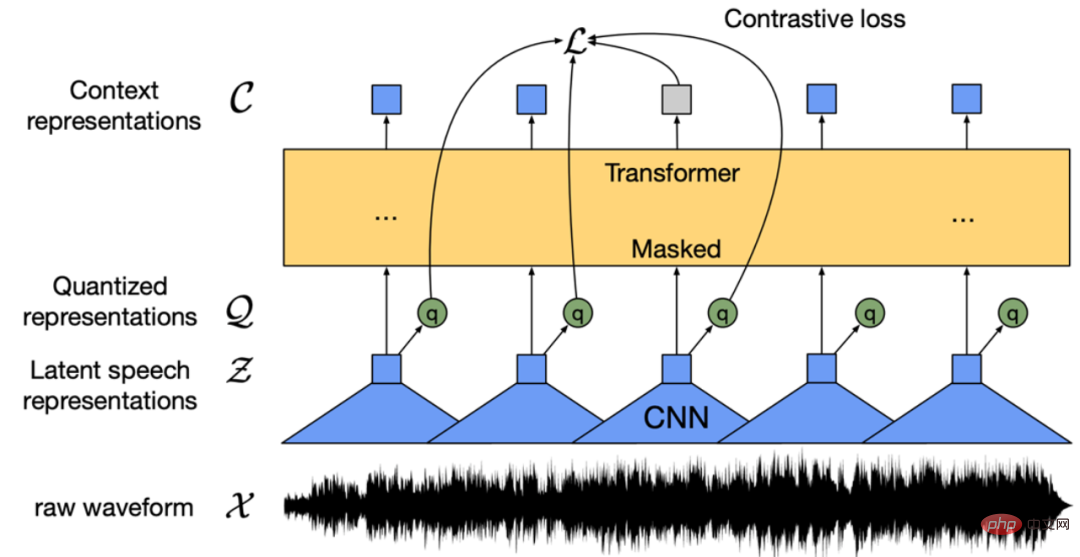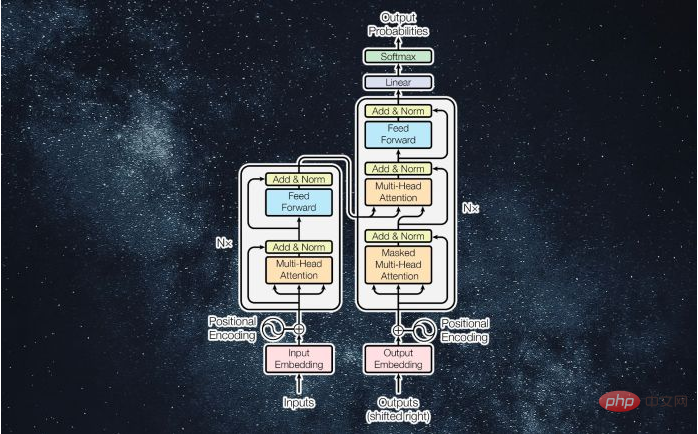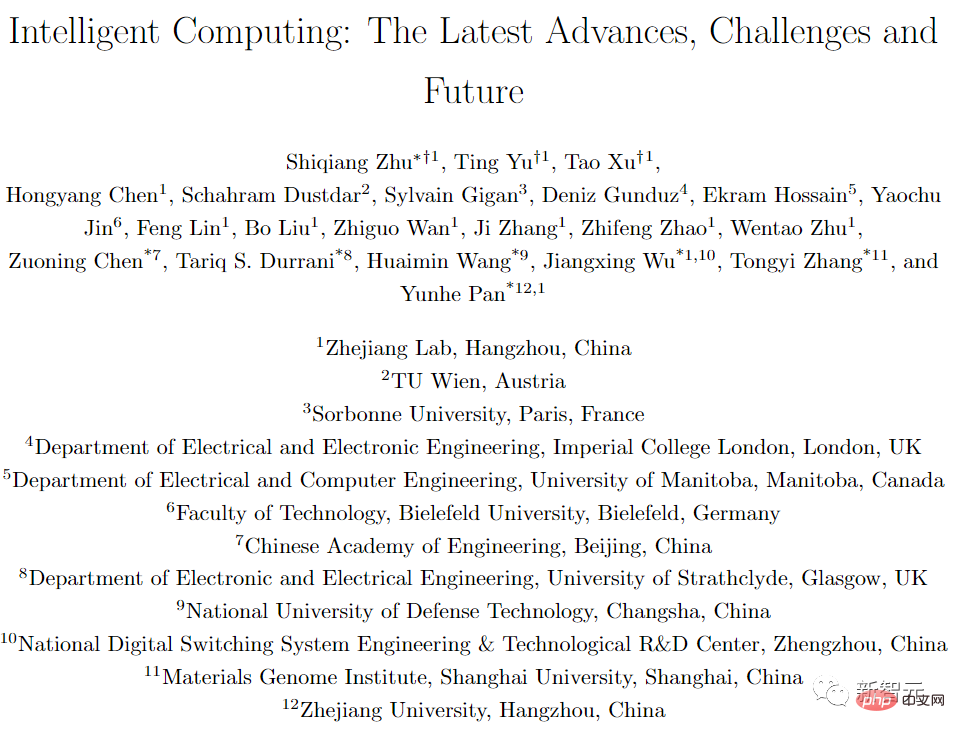 Technology peripherals
Technology peripherals AI
AI It is forbidden to make up large-scale language models randomly, and given some external knowledge, the reasoning is very reliable.
It is forbidden to make up large-scale language models randomly, and given some external knowledge, the reasoning is very reliable.Large language models (LLM) have demonstrated excellent performance on a variety of complex tasks through in-context learning without requiring task-specific training or fine-tuning. Recent advances in prompts and decoding have also enabled LLM becomes a reality for solving complex reasoning tasks.
However, LLM may store outdated, incomplete, or incorrect knowledge, and to successfully deploy LLM into real-world applications, external knowledge sources (such as Wikipedia) are crucial. Previous attempts have been made to apply knowledge to smaller language models (LMs) such as T5, BERT, and RoBERTa, but these methods often require additional training or fine-tuning, are costly, and are completely impractical for LLMs.
Based on this, researchers from the University of Rochester, Tencent AI Lab and the University of Pennsylvania jointly proposed a post-processing method called Rethinking with Retrieval (RR) to Leveraging external knowledge in LLM.

##Paper address: https://arxiv.org/pdf/2301.00303v1.pdf
The idea of this research is to first use the chain-of-thought (CoT) prompting method to generate a set of different reasoning paths, similar to Wang et al. (2022) method. The study then uses each inference step in these paths to retrieve relevant external knowledge, allowing the RR method to provide more plausible explanations and more accurate predictions.
This study uses GPT-3 175B and several common external knowledge sources (Wikipedia, Wikidata, WordNet and Conceptnet) to evaluate the performance of the RR method on three complex reasoning tasks Effectiveness, including common sense reasoning, temporal reasoning and tabular reasoning. Experimental results show that RR consistently outperforms other methods on these three tasks without additional training or fine-tuning, indicating that the RR method has great advantages in leveraging external knowledge to improve LLM performance.
Rethinking with RetrievalIn fact, even though LLM accurately captures the elements needed to answer the question, these models sometimes produce incorrect results. This phenomenon indicates that there are some problems in the way LLM stores and retrieves knowledge, including:
- There is outdated, incorrect or missing relevant knowledge in the pre-training corpus;
- Incorrect storage of relevant knowledge during pre-training;
- Incorrect retrieval of relevant knowledge during the inference phase.
The general idea of the RR method is as follows: given an input question Q, the RR method first uses chain-of though prompting to generate a set of different Inference paths R_1, R_2, ..., R_N, where each inference path R_i consists of an explanation E_i followed by a prediction P_i, which is then supported by retrieving relevant knowledge K_1, ..., K_M from the appropriate knowledge base KB explanations in each reasoning path and select the prediction  that best fits that knowledge.
that best fits that knowledge.
Chain of Thought (CoT) prompting. Significantly different from standard prompting, CoT prompting involves step-by-step reasoning example demonstrations in the prompting to generate a series of short sentences that capture the reasoning process.
For example, given the input question: "Did Aristotle use a laptop?" CoT prompting aims to generate a complete reasoning path:
CoT prompting’s reasoning is: “Aristotle died in 322 BC. The first laptop was invented in 1980. Therefore, Aristotle did not use a laptop. So the answer is no. ” instead of simply outputting “No”.
Sampling different inference paths. Similar to Wang et al. (2022), this study sampled a different set of inference paths R_1, R_2, ..., R_N instead of only considering the optimal proportional path (greedy) as in Wei et al. (2022) path). Regarding the question "Did Aristotle use a laptop?", the possible reasoning path is as follows:
(R_1) Aristotle died in 2000. The first laptop was invented in 1980. So Aristotle used a laptop. So the answer to this question is yes.
(R_2) Aristotle died in 322 BC. The first laptop was invented in 2000. Therefore, Aristotle did not use a laptop. So the answer is no.
Knowledge retrieval. Different knowledge bases can be used to handle different tasks. For example, to answer the question "Did Aristotle use a laptop?" we can use Wikipedia as the external knowledge base KB. Information retrieval techniques can be used to retrieve relevant knowledge K_1,...K_M from Wikipedia based on decomposed reasoning steps. Ideally, we would get the following two paragraphs from Wikipedia for this question:
(K_1) Aristotle (384 BC to 322 BC) was Greek philosopher and polymath in the classical period of ancient Greece
(K_2) The first laptop computer, the Epson HX-20, was invented in 1980...
Faithful reasoning. We can estimate the confidence of each inference path R_i using the function f_KB(R_i), which is based on the relevant knowledge K_1,...,K_M retrieved from the knowledge base KB. The final prediction can be obtained by applying the following inference process:

Experimental Evaluation
In this section , this study presents the evaluation of RR on three complex reasoning tasks: commonsense reasoning, temporal reasoning, and tabular reasoning.
Experimental settings. In all experiments, this study uses GPT-3 text-davinci-002 unless otherwise stated. The maximum number of tokens generated during the completion of the experiment was set to 256, zero-shot, few-shot, and chain-of-thought prompting, and the temperature parameter (temperature) was fixed to 0.
result. As shown in Table 1, our proposed method, RR, consistently outperforms all baselines on all three inference tasks without additional training or fine-tuning. These results highlight the effectiveness of RR in leveraging external knowledge to improve LLM performance.

This study demonstrates the analysis of GPT-3 with the CoT prompting method on the StrategyQA dataset. After carefully examining the output of GPT-3, the study observed that RR can provide reasonable explanations and correct predictions for many problems. For example, when given the question "Will Albany, Georgia reach 100,000 residents before Albany, New York?" GPT-3 produced the following output:

# Overall, the quality of the output answers to questions is very high. However, the study also observed that GPT-3 may occasionally provide incorrect factual support for its interpretations or make incorrect reasoning for its predictions, although it is generally able to identify appropriate viewpoints.
Wrong supporting facts. As shown in Table 2, GPT-3 provides incorrect factual support for Lil Jon's highest-charting song on the Billboard chart, stating that the highest-charting song is Get Low instead of the correct answer Yeah. Additionally, GPT-3 incorrectly reasoned that the summit of Mount Fuji cannot be higher than the Sea of Japan, rather than the correct answer being that it is.

Please refer to the original paper for more technical details.
The above is the detailed content of It is forbidden to make up large-scale language models randomly, and given some external knowledge, the reasoning is very reliable.. For more information, please follow other related articles on the PHP Chinese website!
 从VAE到扩散模型:一文解读以文生图新范式Apr 08, 2023 pm 08:41 PM
从VAE到扩散模型:一文解读以文生图新范式Apr 08, 2023 pm 08:41 PM1 前言在发布DALL·E的15个月后,OpenAI在今年春天带了续作DALL·E 2,以其更加惊艳的效果和丰富的可玩性迅速占领了各大AI社区的头条。近年来,随着生成对抗网络(GAN)、变分自编码器(VAE)、扩散模型(Diffusion models)的出现,深度学习已向世人展现其强大的图像生成能力;加上GPT-3、BERT等NLP模型的成功,人类正逐步打破文本和图像的信息界限。在DALL·E 2中,只需输入简单的文本(prompt),它就可以生成多张1024*1024的高清图像。这些图像甚至
 找不到中文语音预训练模型?中文版 Wav2vec 2.0和HuBERT来了Apr 08, 2023 pm 06:21 PM
找不到中文语音预训练模型?中文版 Wav2vec 2.0和HuBERT来了Apr 08, 2023 pm 06:21 PMWav2vec 2.0 [1],HuBERT [2] 和 WavLM [3] 等语音预训练模型,通过在多达上万小时的无标注语音数据(如 Libri-light )上的自监督学习,显著提升了自动语音识别(Automatic Speech Recognition, ASR),语音合成(Text-to-speech, TTS)和语音转换(Voice Conversation,VC)等语音下游任务的性能。然而这些模型都没有公开的中文版本,不便于应用在中文语音研究场景。 WenetSpeech [4] 是
 普林斯顿陈丹琦:如何让「大模型」变小Apr 08, 2023 pm 04:01 PM
普林斯顿陈丹琦:如何让「大模型」变小Apr 08, 2023 pm 04:01 PM“Making large models smaller”这是很多语言模型研究人员的学术追求,针对大模型昂贵的环境和训练成本,陈丹琦在智源大会青源学术年会上做了题为“Making large models smaller”的特邀报告。报告中重点提及了基于记忆增强的TRIME算法和基于粗细粒度联合剪枝和逐层蒸馏的CofiPruning算法。前者能够在不改变模型结构的基础上兼顾语言模型困惑度和检索速度方面的优势;而后者可以在保证下游任务准确度的同时实现更快的处理速度,具有更小的模型结构。陈丹琦 普
 解锁CNN和Transformer正确结合方法,字节跳动提出有效的下一代视觉TransformerApr 09, 2023 pm 02:01 PM
解锁CNN和Transformer正确结合方法,字节跳动提出有效的下一代视觉TransformerApr 09, 2023 pm 02:01 PM由于复杂的注意力机制和模型设计,大多数现有的视觉 Transformer(ViT)在现实的工业部署场景中不能像卷积神经网络(CNN)那样高效地执行。这就带来了一个问题:视觉神经网络能否像 CNN 一样快速推断并像 ViT 一样强大?近期一些工作试图设计 CNN-Transformer 混合架构来解决这个问题,但这些工作的整体性能远不能令人满意。基于此,来自字节跳动的研究者提出了一种能在现实工业场景中有效部署的下一代视觉 Transformer——Next-ViT。从延迟 / 准确性权衡的角度看,
 Stable Diffusion XL 现已推出—有什么新功能,你知道吗?Apr 07, 2023 pm 11:21 PM
Stable Diffusion XL 现已推出—有什么新功能,你知道吗?Apr 07, 2023 pm 11:21 PM3月27号,Stability AI的创始人兼首席执行官Emad Mostaque在一条推文中宣布,Stable Diffusion XL 现已可用于公开测试。以下是一些事项:“XL”不是这个新的AI模型的官方名称。一旦发布稳定性AI公司的官方公告,名称将会更改。与先前版本相比,图像质量有所提高与先前版本相比,图像生成速度大大加快。示例图像让我们看看新旧AI模型在结果上的差异。Prompt: Luxury sports car with aerodynamic curves, shot in a
 什么是Transformer机器学习模型?Apr 08, 2023 pm 06:31 PM
什么是Transformer机器学习模型?Apr 08, 2023 pm 06:31 PM译者 | 李睿审校 | 孙淑娟近年来, Transformer 机器学习模型已经成为深度学习和深度神经网络技术进步的主要亮点之一。它主要用于自然语言处理中的高级应用。谷歌正在使用它来增强其搜索引擎结果。OpenAI 使用 Transformer 创建了著名的 GPT-2和 GPT-3模型。自从2017年首次亮相以来,Transformer 架构不断发展并扩展到多种不同的变体,从语言任务扩展到其他领域。它们已被用于时间序列预测。它们是 DeepMind 的蛋白质结构预测模型 AlphaFold
 五年后AI所需算力超100万倍!十二家机构联合发表88页长文:「智能计算」是解药Apr 09, 2023 pm 07:01 PM
五年后AI所需算力超100万倍!十二家机构联合发表88页长文:「智能计算」是解药Apr 09, 2023 pm 07:01 PM人工智能就是一个「拼财力」的行业,如果没有高性能计算设备,别说开发基础模型,就连微调模型都做不到。但如果只靠拼硬件,单靠当前计算性能的发展速度,迟早有一天无法满足日益膨胀的需求,所以还需要配套的软件来协调统筹计算能力,这时候就需要用到「智能计算」技术。最近,来自之江实验室、中国工程院、国防科技大学、浙江大学等多达十二个国内外研究机构共同发表了一篇论文,首次对智能计算领域进行了全面的调研,涵盖了理论基础、智能与计算的技术融合、重要应用、挑战和未来前景。论文链接:https://spj.scien
 AI模型告诉你,为啥巴西最可能在今年夺冠!曾精准预测前两届冠军Apr 09, 2023 pm 01:51 PM
AI模型告诉你,为啥巴西最可能在今年夺冠!曾精准预测前两届冠军Apr 09, 2023 pm 01:51 PM说起2010年南非世界杯的最大网红,一定非「章鱼保罗」莫属!这只位于德国海洋生物中心的神奇章鱼,不仅成功预测了德国队全部七场比赛的结果,还顺利地选出了最终的总冠军西班牙队。不幸的是,保罗已经永远地离开了我们,但它的「遗产」却在人们预测足球比赛结果的尝试中持续存在。在艾伦图灵研究所(The Alan Turing Institute),随着2022年卡塔尔世界杯的持续进行,三位研究员Nick Barlow、Jack Roberts和Ryan Chan决定用一种AI算法预测今年的冠军归属。预测模型图


Hot AI Tools

Undresser.AI Undress
AI-powered app for creating realistic nude photos

AI Clothes Remover
Online AI tool for removing clothes from photos.

Undress AI Tool
Undress images for free

Clothoff.io
AI clothes remover

AI Hentai Generator
Generate AI Hentai for free.

Hot Article

Hot Tools

EditPlus Chinese cracked version
Small size, syntax highlighting, does not support code prompt function

MinGW - Minimalist GNU for Windows
This project is in the process of being migrated to osdn.net/projects/mingw, you can continue to follow us there. MinGW: A native Windows port of the GNU Compiler Collection (GCC), freely distributable import libraries and header files for building native Windows applications; includes extensions to the MSVC runtime to support C99 functionality. All MinGW software can run on 64-bit Windows platforms.

SublimeText3 Chinese version
Chinese version, very easy to use

PhpStorm Mac version
The latest (2018.2.1) professional PHP integrated development tool

SublimeText3 Linux new version
SublimeText3 Linux latest version





